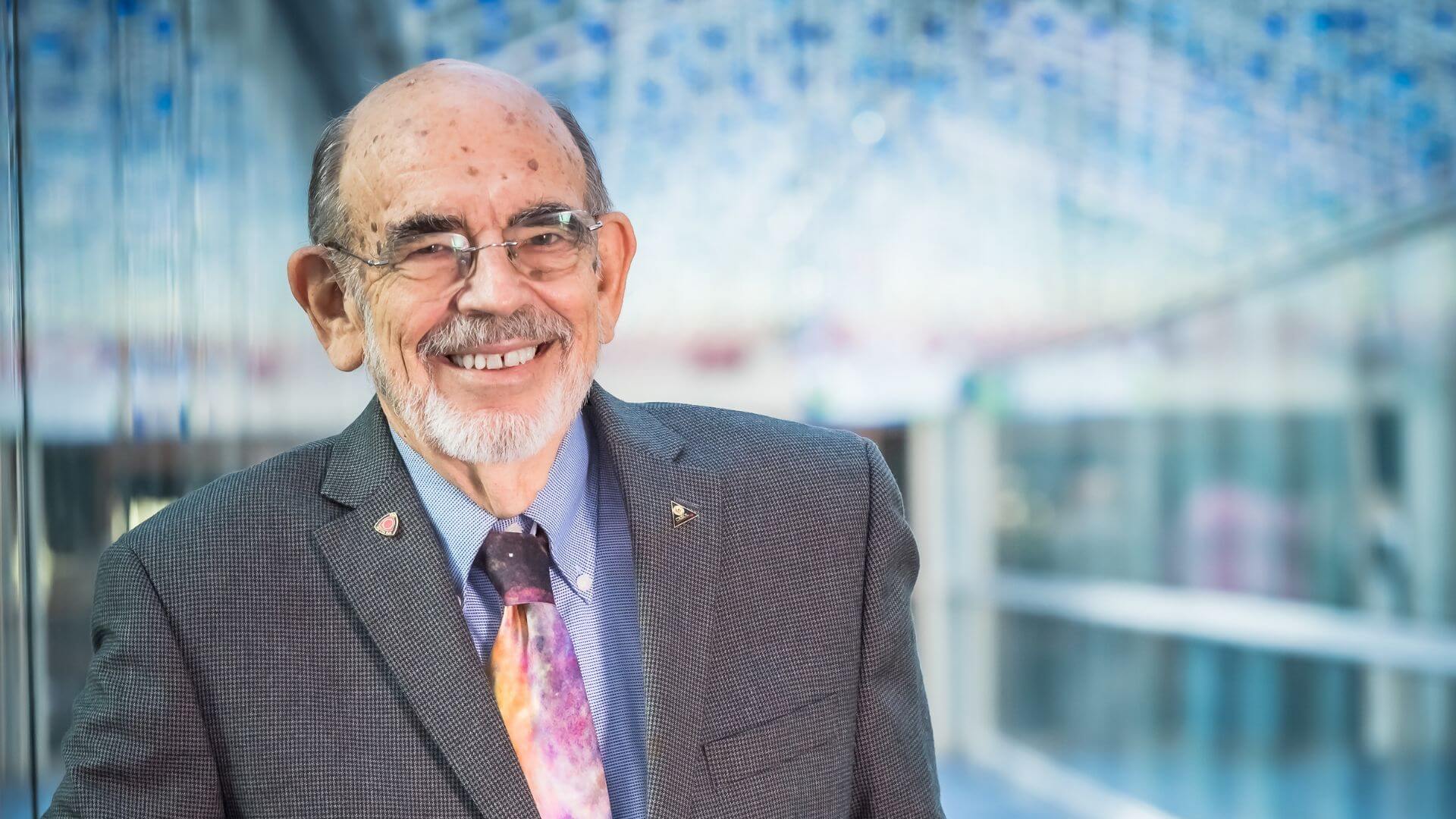Introducing our Scientist in Residence
As an institution, Orlando Science Center is dedicated to increasing science literacy in our community and beyond. We're taking steps to solidify our place as a trusted resource for up-to-date information on popular science topics. From climate science to space exploration, we hope that when a community member has a STEM-related question to ask a scientist, we are the first place they go to find out more.
As part of this endeavor, we are proud to introduce our Scientist in Residence, an initiative that goes hand-in-hand with our Science Matters campaigns. The Scientist in Residence is a STEM professional who is an expert in their field. They're also available to provide unique insight into trending science topics, promote science literacy, and answer questions from the public.
Meet Dr. M.J. Soileau
It is our pleasure to introduce Dr. M.J. Soileau, our inaugural Scientist in Residence. Dr. Soileau is the perfect person to help us launch this effort. A big personality with a passion for improving the STEM environment, Dr. Soileau has been a trailblazer in both optical research and higher education.
He has been a fervent supporter of Orlando Science Center since the 1980s, when he first joined the Board of Directors. Now an Emeritus Member of the Board, Dr. Soileau served as Chairman during a critical period of the Science Center's history, garnering financial resources and governmental support for our mission.
Dr. Soileau is a Louisiana sharecropper/laborer's son who hoed cotton to pay for college. As you can tell, he learned the value of hard work early. Dr. Soileau remembers his parents as good, hardworking people who raised him to speak bluntly and pursue goals relentlessly.
"I never was the brightest star in the galaxy - and I'm still not - but I grew up learning how to work," Dr. Soileau said. "I think one of the most important things you learn in science is, if you really push on a problem long enough and hard enough, it gives up."
Dr. Soileau moved to Orlando in January 1987 to be the founding director of the Center for Research in Electro-Optics and Lasers (CREOL) — now CREOL the College of Optics and Photonics — at the University of Central Florida (UCF). He dedicated more than 35 years of his career to UCF, transforming the fledgling research center into one of the major educational and research institutions for optics in the world. Dr. Soileau became Vice President for Research and Commercialization in 2000. He then returned to the CREOL faculty in the Fall of 2016 and retired July 2022.
"What a wonderful life to spend your life learning stuff," Dr. Soileau said. "And by the way, when you teach, you learn so much more than the students do."
It is this passion for learning and education that we hope will permeate our halls and help support us in our mission to inspire science learning for life. As our Scientist in Residence, Dr. Soileau will be making appearances and offering unique experiences throughout the year. This partnership promises to deliver exceptional educational value to our members, visitors, and the Central Florida community — from special presentations at Science Night Live events to guest workshops with the kids of Neighborhood Science.
Dr. Soileau Answers Your Questions!
We have received some fantastic questions from guests, campers, and preschoolers alike for our Scientist in Residence. Check out his answers below and stay tuned for monthly updates! If you're interested in submitting a question of your own, check out the information below. Let's get curious together!
A list of previously answered questions can be found in the Ask a Scientist Question Archive.
Does the moon have water in it?
Yes! Satellites orbiting the Moon have detected water in deep craters at the Moon's north and south poles. These craters are deep enough that no sunlight reaches these ice deposits. This will likely play an important role as we plan manned stations on the Moon and prepare for trips to Mars.
How long can people live?
That is a hard question to answer. The average life span in the USA is 76.3 years. There are 58 countries with longer life spans than the USA. The country with the longest life span is Hong Kong, at 85.5 years. However, with healthy living, which means good diet, good exercise, and access to available vaccines, many people in the USA live past 100 years old. I will be 80 on my next birthday!
What makes things explode?
Rapid production of heat by energetic chemical reactions cause rapid expansion of air and high pressures, which we call an explosion.
|
|
